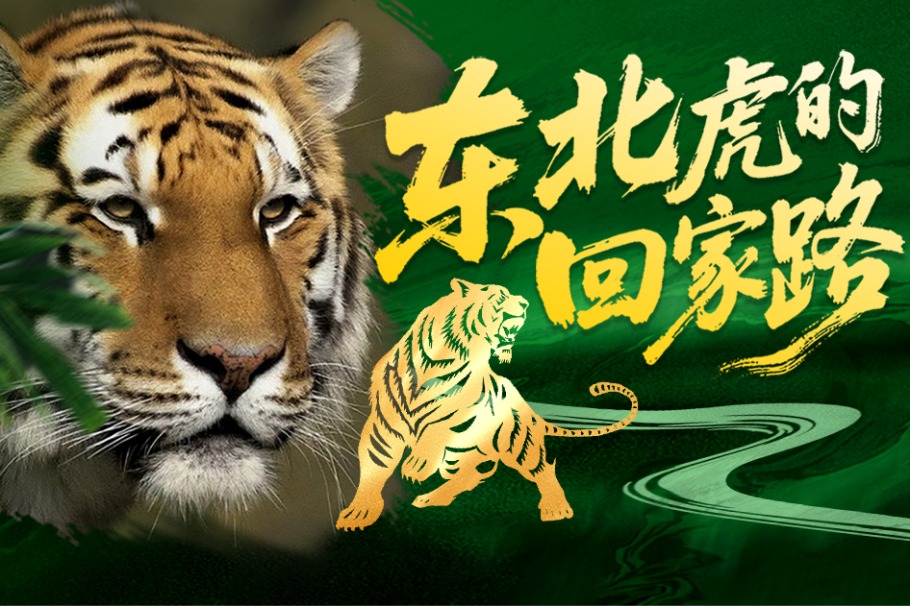A milder mentality
As the summer begins to wane, giving way to cooler days, it's time to enjoy a break after toiling in the heat, take stock and offer thanks for the upcoming harvest, Zhang Lei reports.

The Yuan Dynasty (1271-1368) scholar Wu Cheng compiled The Seventy-two Micro Seasons of the Moon Order, in which he succinctly and clearly defined the laws of the 24 solar terms and their seasonal characteristics, with each term divided into three micro seasons. The arrival of chushu, or End of Heat, signals that the sultry and scorching heat will gradually dissipate, and the weather will become cooler by the day.
Guo Wenbin, a scholar of the solar terms, says by examining the evolution of the oracle bone inscriptions and bronze inscriptions of the Chinese character chu, people can see that the original meaning of the word is "taking a break", that is, a person sitting next to a small table having a rest, and later it evolved into suggesting a place to live, to perch.
It is the 14th solar term and, this year, it falls on today when the sun reaches the ecliptic longitude of 150 degrees. Since it is close to the time of the Mid-Autumn Festival, the folk customs before and after this solar term are mostly related to worshiping ancestors or welcoming autumn.
During this period of time, observers of the Big Dipper in the night sky will find that its curved "handle" still points to the southwest. Although the temperature drops in the morning and evening, and there is already a strong sense of autumn, it is still inevitable that there will be occasional higher temperatures during the day, something people often call "autumn tigers".
As the saying goes, "one autumn rain leads to one colder day", every time a rain falls, the temperature will most likely drop; in addition, with the passage of the seasons, the time the northern hemisphere is exposed to the sun gradually decreases, the days get shorter, and the nights get darker and longer. Compared with liqiu, or Start of Autumn, chushu is a minor term that takes on the seasonal change from a more subtle perspective.
The first micro season of chushu is "the birds sacrifice to the eagle". In ancient times, some had the romantic misunderstanding that eagles, during the season, capture their prey and line them up on the ground, as if paying tribute to those who sacrificed their lives for them to survive. In the food chain, eagles hunt birds to survive, but the "sacrifice" provided personification for the ancients of animals seemingly in awe of nature's gift.
The world beginning to become solemn is the indicator of the second micro season. It is a gradual, chilling experience during which everything starts to wither. It also means that the vibrant and lush summer is about to leave. It might signal the end for many creatures, but the period also suggests the grains of millet, rice and sorghum are ripe for harvest-the third season indicator of this particular term.
Farmers hold various ceremonies to thank the land. Some plant flags in the middle of the field to express their gratitude, and some do not wash their feet when they come home from work in the fields on this day, for fear of washing away the harvest they have received.
Many do not know that ancestor worship is actually one of the most cherished customs during chushu. There will be folk activities to celebrate the overlapping Zhongyuan Festival, commonly known as "Ghost Festival", which takes place on the 15th day of the seventh month in the lunar calendar. In the old days, from the beginning of the seventh month, there was a ceremony to open the gate of hell, and until it was closed at the end of the month, there would be almsgiving activities.
As its proximity to the Zhongyuan Festival, the solar term always carries a sense of gratitude and remembrance. The ancients would worship their ancestors on this day, thanking them for their hard work, for the fragrance of rice overflowing the earth. In addition to placing offerings and a few stalks of rice on the table, people will also come to the river bank, write the names of their deceased relatives and ancestors on paper lotus lamps, and light the candles. The paper lamp floats along the water, and the candlelight carries away blessings to the deceased.
The Buddhist belief system has given the ritual further meaning over time, suggesting that it is used to purify the ghosts in the water. This ceremony, which is dedicated to the mourning of the deceased and the blessings of the living, is also a ceremony to bid goodbye to summer.
Every year during the season, an annual fishing festival is held along the coast of Zhejiang province, and fishermen hold a grand opening ceremony on the day when the fishing moratorium in the East China Sea ends. People can often enjoy a wide variety of seafood. For coastal fishermen, it is the precious harvest season.
More attention should also be paid to our bodily condition. "In general, it tells us that nature is about to turn around, and what should be guarded against is autumn dryness," Guo says. "With such a transition, it can easily damage the lungs. The ancients used many methods. For example, in order to nourish and protect the lungs, the ancients used moxibustion.
"Food also brings benefits. Lentils have a good effect on moistening and invigorating the lungs. Then there are pumpkin, millet and mung bean to protect the respiratory apparatus.
"At this time, the ancients suggested that the acrid and polyacid ingredients should be reduced, and more sour foods should be eaten to protect the liver. Therefore, the noodles and sauerkraut that the northerners like are all very good ingredients. The ancients also mixed pears, apples and honey to make a kind of fruit porridge, a secret porridge to moisten the lungs. Bayberry is also good for moistening the lungs and relieving coughs."
Autumn fatigue is evident during the season as people consumed a lot of physical strength throughout the hot summer season. According to traditional Chinese medicine, the best time to take appropriate exercise is between 3 and 9 o'clock.
"Chushu draws inspirations from our lives. As the real threshold for entering autumn, it tells us how we get along with nature and how we adjust the rhythm of our lives accordingly. Although autumn has arrived, it is easy for people to feel sad about it, but it is a time to balance our state of mind, and see it as a new experience, a new turning point in our life," Guo explains.
"So, at this time, listen to music that makes you feel good, participate in activities that can soothe your mood, go into nature to feel the maturity of all things, and enjoy the high clear sky and the cool autumn air. Turn grief into an appreciation of nature and life.
"If we savor this time, it is full of advice from the ancients at the turning point of life: Let us be calm and revel in the joy of harvest."

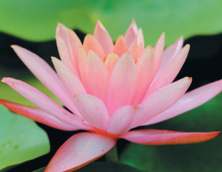
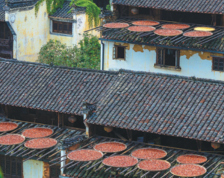

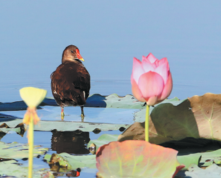

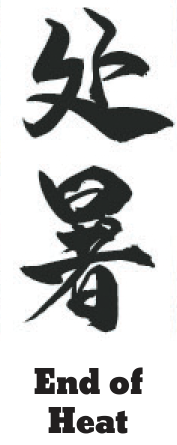
Today's Top News
- China and US agree to extend tariff rates after two-day talks in Stockholm
- US, China trade talks candid, in-depth, constructive, says China intl trade representative
- China unveils delegation for Chengdu World Games
- Xi urges youths to champion vision of peace
- All-out relief efforts underway in flood-hit regions
- Crucial to foster stable China-ROK ties: China Daily editorial




















